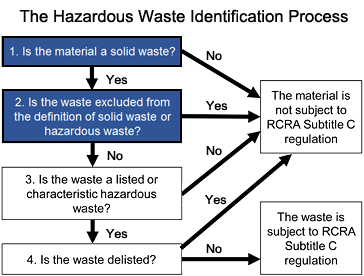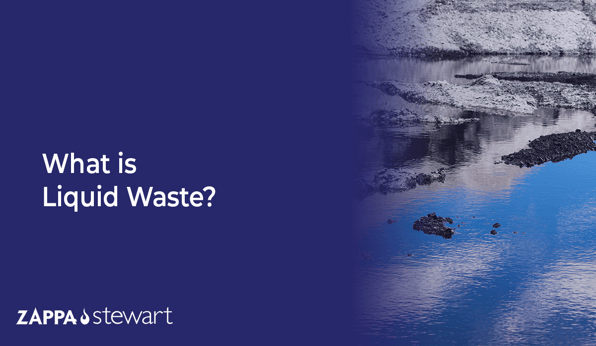What Does Reclaim Waste Mean?
What Does Reclaim Waste Mean?
Blog Article
Little Known Facts About Reclaim Waste.
Table of Contents3 Simple Techniques For Reclaim WasteUnknown Facts About Reclaim WasteRumored Buzz on Reclaim WasteReclaim Waste - The FactsWhat Does Reclaim Waste Do?
Explore the kinds, incidents, and types of liquid waste. Residential sewage waste refers to the waste and items from a residential septic container. This sort of waste is created by humans in homes, schools, and various other structures. This only consists of septic tanks that have a drain field. The appropriate monitoring and disposal of residential sewer waste require liquid waste to be transferred to a sewer treatment plant where the correct techniques and equipment are related to purify and get rid of waste.
Industrial waste often consists of possible risks, such as combustible products or a mix of fluid and strong waste products, and needs a more innovative and comprehensive disposal procedure. The disposal of commercial waste commonly includes the filtering of waste before transportation to make certain safe and proper disposal. Hazardous waste is created from results and runoff of industrial procedures and manufacturing.
This kind of waste can not use the very same sewer management transportation or processes as septic or industrial liquids. The hazardous waste administration procedure needs the examination and testing of liquid waste before it undergoes the disposal process (liquid waste disposal melbourne). Overflow waste is the fluid waste that comes from drainage and excess stormwater in extremely booming locations or cities
Drainage waste can create contamination and flooding otherwise handled effectively. Find out more about sewer cleaning and waste monitoring. Guaranteeing proper waste management can prevent calamities and lower ecological damage. Both people in property settings and professionals in industrial or production markets can gain from recognizing the procedures and regulations of fluid waste administration.
Examine This Report on Reclaim Waste
Call PROS Solutions today to find out about our waste monitoring and disposal services and the correct ways to take care of the liquid waste you create.
(https://blogfreely.net/reclaimwaste1/yc311a58b1)This supposed 'wastewater' is not only a vital source but, after therapy, will certainly be released to our land, rivers or the sea. Utilized water from bathrooms, showers, baths, kitchen sinks, laundries and industrial procedures is known as wastewater.

water utilized to cool down machinery or tidy plant and equipment). Stormwater, a form of wastewater, is drainage that flows from farming and city areas such as roofs, parks, gardens, roadways, courses and gutters right into stormwater drains pipes, after rain. Stormwater streams untreated straight to neighborhood creeks or rivers, ultimately getting to the ocean.
Getting The Reclaim Waste To Work
In Queensland, a lot of wastewater is dealt with at sewage treatment plants. Wastewater is delivered from residential or industrial sites with a system of sewage systems and pump terminals, recognized as sewage reticulation, to a sewage therapy plant.
The Division of Natural Resources advises city governments concerning handling, operating and keeping sewage systems and therapy plants. In unsewered areas, local federal governments might need householders to install specific or family sewage treatment systems to deal with residential wastewater from bathrooms, kitchen areas, shower rooms and laundries. The Department of Natural Resources authorises using household systems when they are verified to be efficient.
Many stormwater receives no therapy. In some new neighborhoods, treatment of some stormwater to get rid of trash, sand and crushed rock has actually started utilizing gross pollutant catches. Wastewater treatment takes place in four phases: Eliminates strong matter. Bigger solids, such as plastics and other things incorrectly released to sewers, are gotten rid of when wastewater is travelled through screens.
Makes use of tiny living organisms recognizes as micro-organisms to damage down and remove remaining liquified wastes and fine particles. Micro-organisms and wastes are included in the sludge.
Getting The Reclaim Waste To Work
Nutrient removal is not available at all sewer therapy plants since special info it calls for costly specialist equipment. Clear fluid effluent generated after therapy may still include disease-causing micro-organisms - liquid waste removal.

This normally implies wastewater has to be treated or contaminants removed prior to it can be released to waterways. A lot of wastewater moves into the sewerage system. Under the Act, regional governments provide approvals and licences for environmentally pertinent activities (ERAs) entailing wastewater releases that might have a neighborhood effect. The department carries out approvals and permits to ERAs entailing wastewater releases that could have a regional or statewide impact.
Getting My Reclaim Waste To Work
Otherwise, samples are taken for laboratory analysis. Frequently several examinations are needed to establish the degrees of each of the various pollutants such as oils, heavy metals and chemicals in water. Surveillance provides accurate info concerning water top quality and can validate that licence conditions are being met. The info acquired via surveillance gives the basis for making water top quality choices.
Report this page